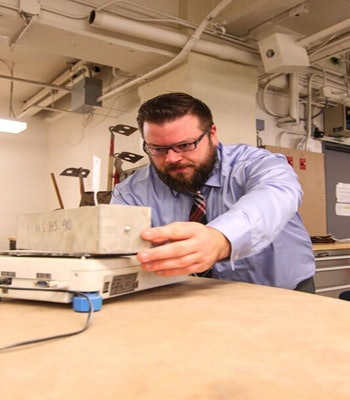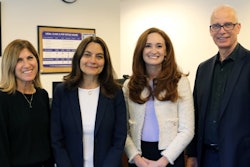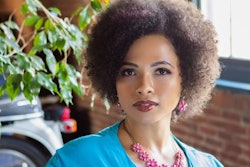Dr. Matthew Adams has heard that there are other LGBT staff members at the New Jersey Institute of Technology (NJIT), but he hasn’t met any of them.
“I know that there are very few of us,” says Adams, an assistant professor of civil engineering at NJIT.
 Dr. Matthew Adams (Photo courtesy of New Jersey Institute of Technology)
Dr. Matthew Adams (Photo courtesy of New Jersey Institute of Technology)Adams, who grew up near Manchester, New Hampshire, began identifying as gay when he was a teenager. He came out when he was 18, at which point he thought he would never again have to hide “in the closet.”
That was until he came to NJIT in the fall of 2015 to begin his career as a college professor. Adams describes the institution as a “fairly apolitical university” that is not “the most openly welcoming place.”
To be clear, he says, no one has said anything derogatory to him directly, and the university doesn’t necessarily have “an anti-gay bent,” but it also doesn’t have any faculty committees dedicated to diversity like other colleges of its size.
During his first term at NJIT, Adams felt it was better to not be open about his sexuality. Soon though, he realized, “I should be more vocal. I should be more visible — for any of my students who might be gay, to show them that you can be successful in this career and be out.”
Because the university didn’t offer such a course, Adams took a safe zones class online, which taught him best practices on cultivating an inclusive and respectful classroom for LGBTQ students.
And he placed his completion sticker in public view. He also put a pride tag on his office door.
At the beginning of every term, while introducing himself, he now discloses that he prefers the masculine pronoun.
“Everyone in my class so far has given me a weird look when I say that, but someday I may have a student that prefers another pronoun than what they visually present as, and I want them to know that they can tell me what that is,” he says. “I will use it … just to make students more comfortable.”
Adams remembers what it was like to be the only gay male civil engineering student at the University of New Hampshire, where he received his bachelor’s degree in 2006. While he was never bullied, “I ended up with more [platonic] girlfriends than boyfriends. I just seemed to get along with them better, and I’m not really sure why,” he says. And he gravitated away from the engineering club “because they weren’t as welcoming.”
In high school, Adams was interested in designing amusement parks, which he developed from spending a lot of time playing RollerCoaster Tycoon, a video game series that simulates amusement park management. His guidance counselor suggested he study civil engineering. But “he was wrong,” Adams says. “Urban planning is what I should have been studying to do that, but it was fortuitous that he was wrong because that meant that I ended up in civil engineering and found concrete materials, which I love.”
Adams discovered concrete after taking a construction materials course during his undergraduate years. Not only did his professor’s “excitement about the materials really show through in the class,” but the material — something that everyone’s familiar with — was “actually this kind of complex chemical system.” He was fascinated with studying concrete — so much so that he went from being a good student to being a great student, he says.
After working in structural design for four years, Adams wanted to work with materials again. However, he needed lab experience at a research university. At a conference hosted by the American Concrete Institute, a faculty member invited him to Oregon State University. There, he went on to earn a master’s in civil engineering in 2012 and a Ph.D. in 2015.
In graduate school, he worked alongside an LGBT faculty member who understood the challenges of living an alternative lifestyle, he says.
He also found that he enjoyed mentoring younger students in the lab.
“I liked the educational atmosphere. We’re looking to solve problems and come up with ideas. We’re not looking to make a profit,” he says. “That was very appealing to me.”
This led him to earn a graduate certificate in college and university teaching at Oregon State in 2014 and pursue a career in higher education.
Now, as a professor, he intends to continue to advocate for LGBT students when appropriate. Thus far, the campus’s response has been relatively quiet.
“I think that’s a bad thing because these are all discussions that need to be held openly,” he says. “We see on the news the kind of hate crimes and vandalism that’s happening at universities across the country, and unless you’re willing to talk about that as being hate in an open manner, students aren’t necessarily going to realize it.”



















